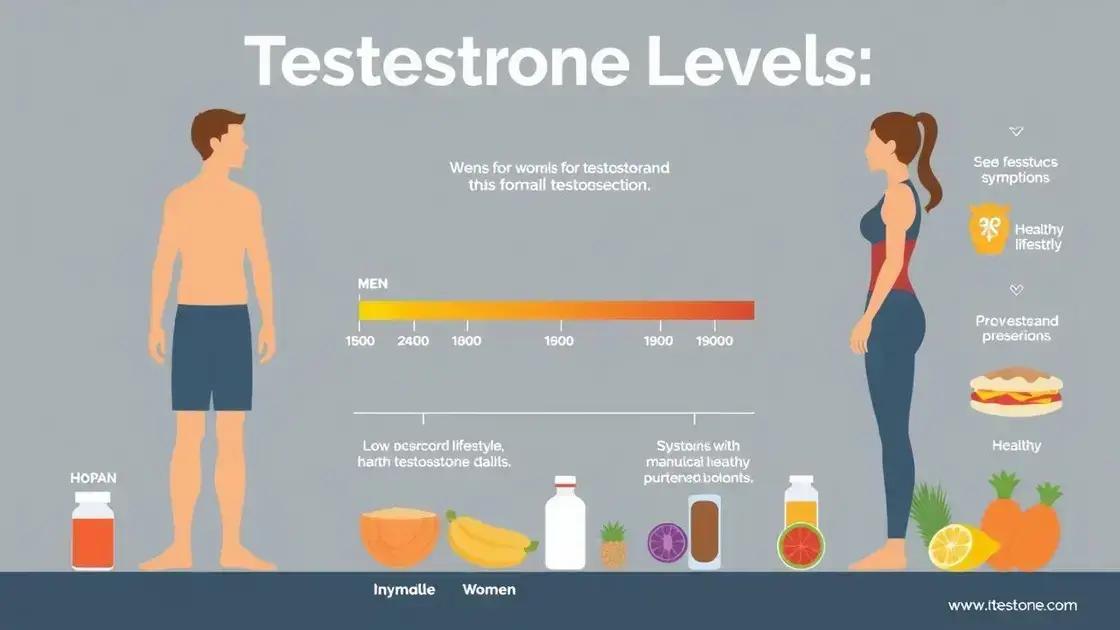
From Novice to Pro: Understanding Insulin’s Role in Bodybuilding Performance
Insulin is a hormone that plays a vital role in the body’s metabolism, particularly in how the body processes carbohydrates, fats, and proteins. For bodybuilders, understanding insulin’s function and its effects on muscle growth and fat loss can be beneficial in developing effective training and dietary strategies. This article will explore the science behind insulin and its relevance to bodybuilding, highlight its potential benefits and risks, and provide practical insights for athletes looking to optimize their performance through hormonal manipulation.
The Basics of Insulin
Insulin is produced by the pancreas in response to rising blood glucose levels, primarily after meals. Its primary function is to facilitate the uptake of glucose into cells, where it can be used for energy or stored as glycogen in the liver and muscle tissues. Apart from glucose metabolism, insulin also affects fat storage and protein synthesis.
Insulin’s Role in Muscle Growth
Bodybuilders are often concerned with maximizing muscle hypertrophy (growth), and insulin plays a significant role in this process. Here’s how insulin assists in muscle growth:
- Muscle Cell Uptake: Insulin promotes the uptake of glucose and amino acids into muscle cells. This action aids in replenishing glycogen stores post-workout and facilitates muscle repair using essential amino acids.
- Inhibition of Protein Breakdown: Insulin has anti-catabolic effects, meaning it helps prevent muscle breakdown. High insulin levels can decrease levels of catabolic hormones, such as cortisol, which can impede muscle recovery and growth.
- Increased Nutrient Delivery: After resistance training, insulin sensitivity increases, leading to a more efficient uptake of nutrients in muscle cells. Consuming carbohydrates post-workout, particularly in conjunction with protein, enhances this effect.
Insulin Sensitivity and Resistance
Insulin sensitivity refers to how responsive your cells are to insulin. High insulin sensitivity allows for more efficient glucose uptake and utilization, promoting muscle growth and fat loss. Conversely, insulin resistance occurs when cells become less responsive, leading to higher insulin levels and increased fat storage. For bodybuilders, improving insulin sensitivity is often a priority as it enhances nutrient partitioning and overall body composition.
How to Improve Insulin Sensitivity
Enhancing insulin sensitivity benefits muscle growth and whole-body metabolism. Here are some methods to improve your insulin sensitivity:
- Regular Exercise: Both resistance training and aerobic exercise can improve insulin sensitivity significantly.
- Balanced Diet: A diet rich in whole foods, particularly those high in fiber, such as vegetables, whole grains, and legumes, can help maintain stable blood sugar levels.
- Sleep and Recovery: Adequate sleep and recovery are crucial for hormonal balance and can prevent insulin resistance.
- Hydration: Staying well-hydrated can improve cellular function and insulin sensitivity.
Insulin and Bodybuilders: The Controversial Use of Insulin
Some bodybuilders use exogenous insulin (insulin injections) as a performance-enhancing strategy. This approach is controversial and comes with significant risks:
Benefits of Exogenous Insulin
- Increased Nutrient Uptake: Bodybuilders use insulin to capitalize on its anabolic properties, leading to rapid muscle recovery and growth.
- Enhanced Glycogen Storage: Insulin promotes larger glycogen stores in muscles, providing more energy for prolonged workouts.
Risks of Exogenous Insulin Use
While some bodybuilders believe the benefits of exogenous insulin justify its use, there are inherent risks, such as:
- Hypoglycemia: An overdose can lead to dangerously low blood sugar levels, which can be life-threatening.
- Insulin Resistance: Over time, excessive insulin use can lead to a decrease in sensitivity, counteracting its benefits.
- Health Complications: Long-term use can come with various health complications, including potential effects on cardiovascular health.
Using Carbohydrates Strategically
For natural bodybuilders, managing carbohydrate intake is key. Carbohydrates stimulate insulin production, so timing and type are crucial for maximizing performance and promoting recovery. Here’s how to effectively use carbohydrates in relation to insulin:
- Pre-Workout: Consuming fast-digesting carbohydrates before a workout can elevate insulin levels and provide immediate energy.
- Post-Workout: Post-exercise meals containing carbohydrates are critical for taking advantage of the insulin spike to refill glycogen stores.
- Low Glycemic Index Foods: Incorporating low-GI foods can help maintain a steady energy level and avoid sharp insulin spikes during the day.
Conclusion
Insulin is a key hormone in the context of bodybuilding, influencing muscle growth, recovery, and body composition. Understanding insulin’s role can help bodybuilders make informed choices about diet and training to maximize their physical potential. While the strategic use of carbohydrates can significantly enhance muscle growth and performance, caution should be exercised when considering exogenous insulin. Improving natural insulin sensitivity through lifestyle approaches remains the safest and most sustainable method for achieving optimal results in bodybuilding.
Frequently Asked Questions
1. What is insulin?
Insulin is a hormone produced by the pancreas that helps regulate blood sugar levels and is crucial for energy metabolism.
2. How does insulin affect muscle growth?
Insulin promotes nutrient uptake into muscle cells, inhibits protein breakdown, and encourages glycogen storage, all of which contribute to muscle hypertrophy.
3. Is it safe to use exogenous insulin for bodybuilding?
Using exogenous insulin carries risks such as hypoglycemia and long-term insulin resistance, making it a controversial practice among athletes.
4. How can I improve my insulin sensitivity?
You can improve insulin sensitivity through regular exercise, a balanced diet rich in whole foods, adequate sleep, and maintaining hydration levels.
5. What are the best food choices for post-workout meals?
Post-workout meals should include a combination of protein and fast-digesting carbohydrates to optimize recovery and nutrient uptake.
For more detailed insights about health, fitness, and bodybuilding, consider visiting these links:
FREE SHIPPING
CLICK HERE!
HOT PROMOTIONS!
Insulin is a hormone produced by the pancreas that plays a crucial role in glucose metabolism and the regulation of blood sugar levels. In the context of bodybuilding, insulin is often discussed due to its anabolic properties. When bodybuilders consume carbohydrates, particularly post-workout, their bodies release insulin to help shuttle glucose and amino acids into muscle cells for recovery and growth. This makes insulin a key player in the post-exercise nutrition window, where athletes aim to replenish glycogen stores and initiate muscle repair.
In bodybuilding, the timing and composition of macronutrients are critical for optimizing insulin response. Consuming a combination of carbohydrates and protein soon after a workout can lead to a significant spike in insulin levels. This spike facilitates not only the uptake of glucose but also enhances the uptake of amino acids, further promoting muscle protein synthesis. Some bodybuilders meticulously plan their meals around this anabolic window to ensure maximum recovery and growth, emphasizing why understanding insulin dynamics is important for performance enhancement.
However, the relationship between insulin and bodybuilding is not without its complexities. Excessive insulin can lead to fat storage, as the hormone drives glucose into cells and can oversaturate muscle energy stores. Bodybuilders must strike a balance between utilizing insulin to enhance muscle recovery and avoiding the negative effects of high insulin levels, such as weight gain. This often leads to discussions about insulin sensitivity—the body’s ability to respond to insulin effectively. Improving insulin sensitivity through diet, exercise, and lifestyle choices can create a more favorable environment for muscle growth while maintaining a lean physique.
An additional dimension of insulin in bodybuilding comes from the practice of using exogenous insulin among some athletes. Although this can lead to enhanced gains due to its anabolic effects, it carries significant risks, including hypoglycemia, increased fat storage, and potential long-term health effects. The use of exogenous insulin should always be approached with caution and under professional guidance, as misuse can lead to severe health complications. Moreover, relying on synthetic hormones for muscle growth is often discouraged in favor of balanced nutrition and progressive training.
In conclusion, insulin is a vital hormone that impacts bodybuilding by influencing muscle recovery and growth through its anabolic effects. While it can be a powerful tool when properly understood and managed, the risks associated with improper insulin use and the potential for excess fat storage necessitate a careful approach. Bodybuilders should focus on strategies to enhance their body’s natural insulin response through optimal nutrient timing and lifestyle choices, rather than resorting to exogenous sources. By doing so, they can promote muscle hypertrophy and maintain overall health, aligning their physical goals with well-being.
















